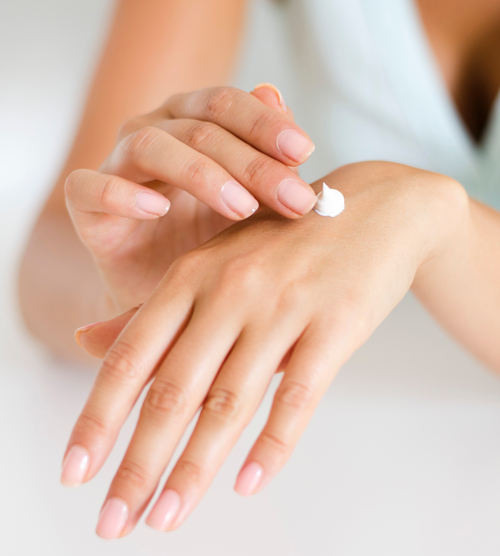skin problems in menopause
skin problems in menopause

Menopause brings many dramatic changes in women’s bodies and the main reason for that is decreased production of estrogen hormone in the body. Symptoms include hot flushes, night sweats, mood changes, vaginal dryness and many more. – but can menopause also cause a rash?
Estrogen is the key hormone in women’s reproductive health, but it also plays an important part in keeping your skin youthful and healthy via stimulating the production of collagen and oil which maintains skin elasticity. Scientists are also researching estrogen’s role in wound healing, possibility of protecting against skin cancers and sun damage.
How menopause affects the skin
When estrogen levels decrease, your skin dries out and becomes thinner, especially in sensitive areas. However, there is no evidence to suggest that menopause causes any specific type of rash or skin disease. There are other key factors with decreased estrogen which can impact your skin which includes – sun damage, dehydration, smoking, fat redistribution, genetics.
Also, in menopause, the body becomes more vulnerable to changes in temperature and your skin more sensitive to redness and irritation. Sensitive skin may react more to itchy or synthetic fabrics, soaps, perfumes, dyes or beauty products. Increased sensitivity and discomfort leads to scratching which can cause hives and rashes.
Estrogen receptors are most abundant around the genital area, face and lower limbs. Therefore, these areas are affected more due to reduced amounts of circulating estrogen and are more common to have certain skin conditions.
FACIAL HAIR
Many women notice facial hair growth during menopause, especially under the chin, along the jawline, or on the upper lip although it had not previously grown. The decline in estrogen and other hormones can cause changes in a woman’s hair, causing it to thin or fall out.
THINNING SKIN
A decline in estrogen, causes the skin to get thinner and more delicate, making it more prone to damage as well as more frequent bruising.
AGE SPOTS
Age spots are a sign of previous sun damage and very common in menopausal women.
Wearing sunscreen consistently and from an early age is the best way to prevent age spots and skin cancer developing later in life. It is essential to get age spots checked with a dermatologist regularly as some types of skin cancer look like an age spot.
ACNE
Menopause may also lead to acne in some people due to hormonal changes.
KERATODERMA CLIMACTERICUM
The main symptom of this condition is thickening of the skin on palms and soles which can be itchy, painful with cracks and be splitting in severe cases.
VAGINAL SYMPTOMS
Atrophic vulvovaginitis – means thinning of vaginal skin which may lead to itching, tender skin, burning sensation and painful urination.
Vulvovaginal candidiasis – Candida infection / fungal infection of the vagina which is common due to hormonal changes.
Bacterial vaginosis – Bacterial infection of vagina which may have foul smelling discharge in most cases. However, some women are asymptomatic.
Vaginitis – Inflammation of the vaginal area which can happen due to several reasons and may have significant discharge.
Vulvar lichen sclerosus – Signs and symptoms generally include itchy, irritated, thinned or wrinkled skin, recurring vaginal tear and painful intercourse. This chronic disease mainly affects the anogenital area.
skin problems in menopause
How to prevent skin problems?
Skin problems in menopause are the result of hormonal changes as well as other factors which contribute to them. There are a few simple steps that women can take to prevent them.
See your doctor or dermatologist: For any suspicious skin spots or other concerning symptoms, consult your doctor for further advice. Some simple looking skin conditions may require medical attention.






